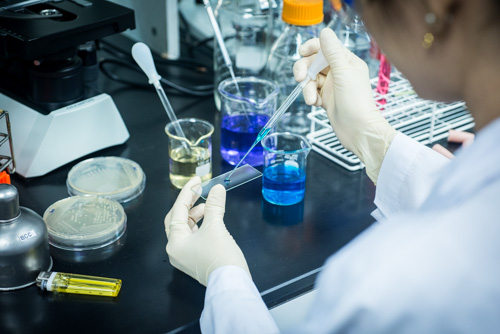Bacteria of the genus Listeria currently contain six species, but only L. monocytogenes is pathogenic to humans, causing listeriosis. Well established traditional methods are tedious and time consuming and thus are not suitable for screening large numbers of food samples required to meet increasing global demand.Some high-throughput
methods based on detecting nucleotide sequences need sophisticated detectors, elaborate sample extraction, and highly-trained personnel. Therefore, immunoassays are still preferred by many end-users for high volume sample screening.

Bead array for L. monocytogenes detection has been developed using specific monoclonal antibodies. The novel highly specific antibodies were obtained from hybridoma libraries generated by using formalin-killed and heat-killed L. monocytogenes as immunogens. The bead array was able to detect the bacteria with the same accuracy as the standard plating method at the 1 CFU level after only 24 h of the enrichment period. In addition, Listeria-specific 3C3 and L. monocytogenes-specific 7G4 antibodies were successfully employed to construct a multiplex detection for Listeria, Salmonella and Campylobacter in a bead array format by combining with commercial Salmonella-specific and available Campylobacter-specific antibodies.
This study was a collaborative work between BIOTEC and Queen's University Belfast (UK).
Ref: Karoonuthaisiri, N., Charlermroj, R., Teerapornpuntakit, J., Kumpoosiri, K., Himananto, O., Grant, I. R., Gajanandana, O., Elliott, C. T. (2015). Bead array for Listeria monocytogenes detection using specific monoclonal antibodies. Food Control, 47, 462-471.
